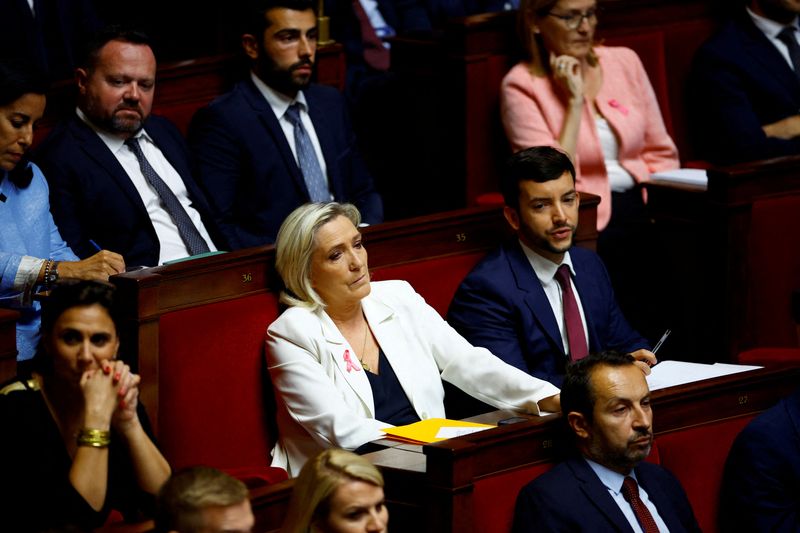
PARIS (Reuters) – French Prime Minister Michel Barnier must make further budget concessions to avoid a no confidence motion that could topple his government, National Rally lawmaker Marine Le Pen said on Sunday.
Le Pen has given Barnier until Monday to yield to budget demands from the National Rally (RN) or face the threat that they would back a likely no confidence motion against his government, which would trigger its collapse.
“A vote against (the government) is not inevitable. All Barnier has to do is accept to negotiate,” Le Pen said in an interview with La Tribune newspaper.
“There’s been talks for the last two weeks but clearly things haven’t moved ahead as we would have liked,” she added.
Barnier already dropped a planned electricity tax increase last week, but the RN also wants him to raise pensions in line with inflation whereas he had aimed to raise some less than inflation to save money.
The RN is also unhappy the government may raise tax on gas and wants a cut in France’s contribution to the European Union’s budget among other demands.
The standoff could come to a head as early as Monday if Barnier has to use aggressive constitutional powers to force a social security financing bill through, which would inevitably trigger a no-confidence motion from the left.
To survive the vote in the fractured lower house, Barnier needs the RN to abstain, otherwise his government and the budget bill could fall, plunging France deep into a political crisis.
Finance Minister Antoine Armand warned in le Journal du Dimanche weekend newspaper that would mean special emergency legislation would have to be passed to ensure that there would be a budget at the start of the year.
But it could only roll over spending limits and tax provisions from this year, which means pensions would get squeezed and tax thresholds would rise for 17 million people as neither could be adjusted for inflation.
The growing uncertainty over France’s budget and the future of its government has put French debt and stocks under pressure, pushing the risk premium on the government’s bonds to a more than 12-year high last week.
Standard & Poor’s offered some relief on Friday, leaving its AA- rating on French debt unchanged although it raised doubts about whether France could stick to the government’s deficit-reduction targets.







